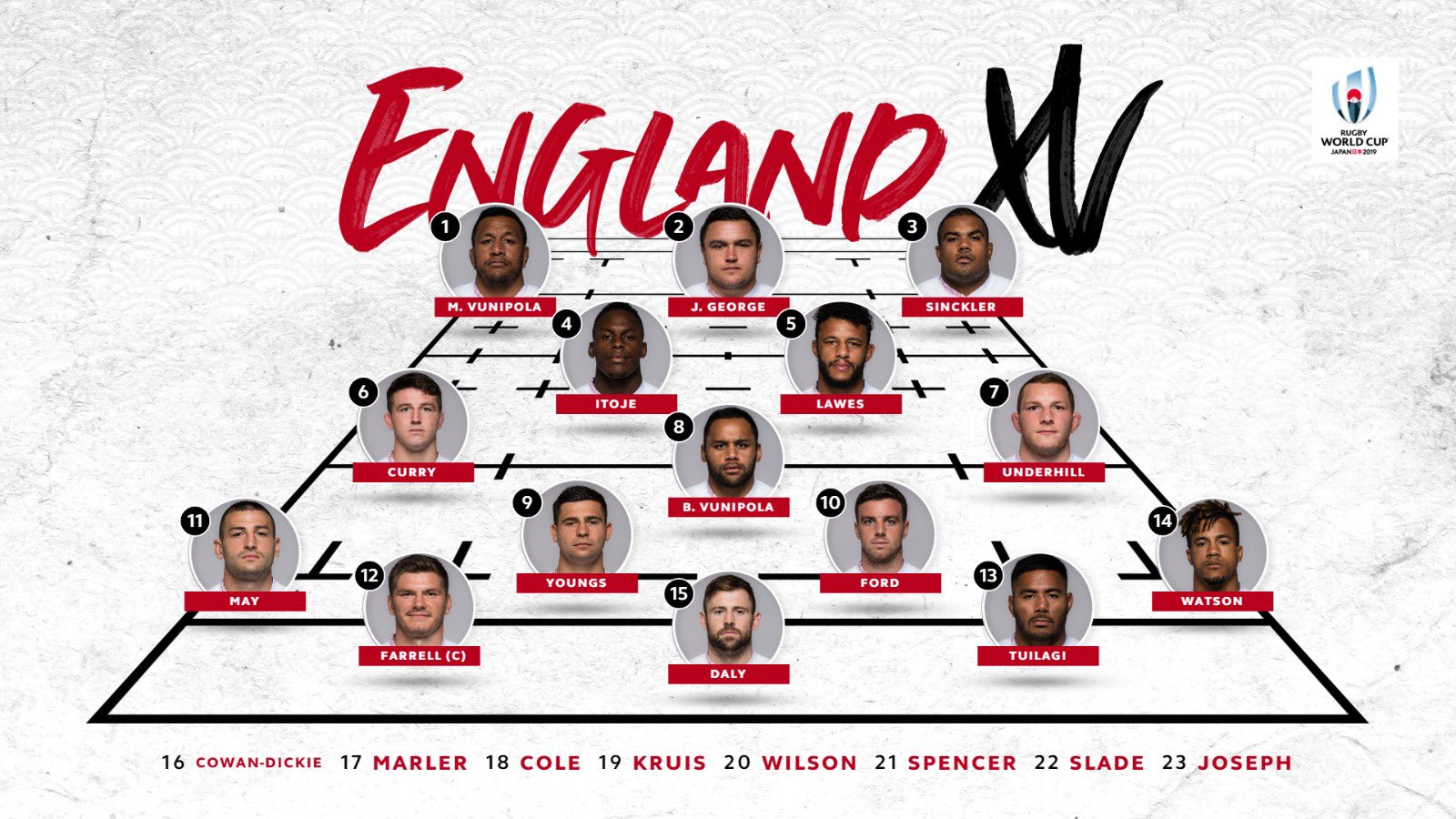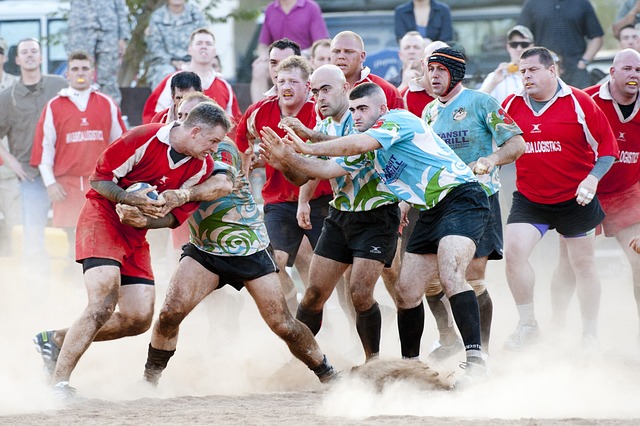
There are few equipment requirements for rugby, which is different from other sports. A ball, a shirt, shorts, and cleats for the feet are all that is required. These accessories are needed to keep players safe and allow them to play the game. These accessories can also be used to enhance and improve your training.
One of the most essential pieces of equipment in rugby training is the rugby tackle bag. They enable players to practice tackling at different angles and help them to improve their agility and strength. They can also serve as a tool for rucking drills and contact drills. These bags have heavy-duty PVC covers. These bags have foam cores that limit the impact force in a collision.
Another crucial piece of equipment is the rugby ball. Rugby is a game that requires speed and physical power to move a ball down the field. The ball is like a cross between American football and soccer. The ball can lose its grip over time so it is important to keep it new. A new rugby bat costs around $20. You can also recycle your old soccer and football boots. However, you will need to remove the studs.

Another important equipment for rugby is the shoulder pads. They help to reduce the damage to the shoulder when making a tackle. They can be as thick as one centimeter and are an excellent choice to protect the shoulder and chest.
A mouthguard, another important piece of equipment in rugby, is also available. A mouthguard is a vital piece of protective equipment for adult athletes. Make sure you choose a mouthguard that is right for your mouth. You can get a mouthguard for as little as a few dollars at a sporting goods store. You must also make sure that it is boil-in-water. You can also contact your dentist if you have any questions.
You should have a pair shin guards as well as the equipment for rugby training. For outdoor play, you shouldn't use a shinguard made of stiff fabric. If you want to buy a shin guard, make sure it is non-rigid fabric. Hard plastic is also a bad idea.
A pair of scrum cap is also a good idea. Scrum caps were traditionally worn only by forwards. However, they are now available for all positions. Scrum caps are important because they help to protect the head from cuts and bruises. They do not protect against concussion but can be used to protect the head from injury.

A t-shirt is a must, as well as a pair of shorts. Shorts for rugby are usually shorter than shorts for football and can be made of cotton or polyester. They typically reach the mid-thigh. It is a good idea to wear socks that match your uniform.
It is important to have a water bottle. Water bottles are essential for all sports, but especially rugby. For your body to stay hydrated during matches and training, it is essential that you drink enough water. Most athletic water bottles can be purchased for less than $10.
FAQ
Who participates in the extremes?
Extreme sports are open to all abilities and ages. Children are just as interested in extreme sports as adults.
You can play tag and dodgeball with your younger siblings. Older kids can join teams and compete against others.
Adults can choose to play in either team or individual sports. There are many different ways to find a partner in a team sport.
You will likely need to ask someone familiar with the process to help you start.
What companies are most likely not to sponsor extreme sport?
Companies that sponsor extreme events like BMX racing or skateboarding have large advertising budgets. They are often active in the local community where they work. Coca-Cola sponsors many local sports events and other activities all across North America. The company also sponsors youth programs and camps at the national and local levels. Coke also sponsors the annual Coca-Cola Rock ‘N’ Roll Marathon in New York City. The event attracts around 100,000 runners from all parts of the globe.
What happens to someone who falls off a cliff while participating in extreme sports?
Extreme sports involve falling off cliffs. You might break bones or even fracture your neck.
This injury is very serious. You could die if you fall from a height greater than 30 meters (100 feet).
What are some of the benefits of extreme sporting?
There are many health benefits to extreme sports participation. These are just a few.
-
You can stay healthy by exercising. You can burn calories by exercising. Exercise can also help you lose weight. So you look better.
-
Extreme sport can increase self-confidence. Extreme sports can make people feel better about themselves.
-
Extreme sports are great fun. You feel free and have lots of energy.
-
Extreme sports offer adventure. What could be better than doing something adventurous? You never know what you will experience.
-
Extreme sports are safe. No matter what sports you choose, they are safe.
-
Extreme sports can prove dangerous. But most extreme sports are safe when done correctly.
-
Extreme sports provide relaxation. Relaxing is best when you do something you love.
-
Extreme sports help build character. Extreme sports can help you build courage, discipline and perseverance. These qualities are crucial for everyday life.
-
Extreme sports help you become stronger. The majority of extreme sports involve some form of physical activity. This can help you build strength and endurance.
-
Extreme sports promote health and fitness. Fitness is essential for all. It will improve your quality and life.
-
Extreme Sports make for a great recreation option. Participating in extreme sports is a great way of spending time with family and friends.
Do extreme sports require expensive equipment?
Yes. Extreme sports equipment is expensive. But people who participate in these activities don't need much money.
Statistics
- Since 1998, overall participation has grown nearly 25% - from 5.2 million in 1998 to 6.5 million in 2004. (momsteam.com)
- Nearly 40% of all mountain bikers have at least graduated from college. (momsteam.com)
- Nearly 98% of all "frequent" roller hockey participants (those who play 25+ days/year) are male. (momsteam.com)
- Based on the degree of difficulty, the routine is scored on form and technique (50 percent), takeoff and height (20 percent), and landing (30 percent). (britannica.com)
- Nearly 30% of all boardsailors live in the South, and more than 55% of all boardsailors live in cities with a population of more than two million people (momsteam.com)
External Links
How To
How Can I Learn To Skateboard?
Skating is a sport where you use your feet to move on ice or snow. Skating can be done alone or with friends. It is a sport that requires balance and coordination. The first thing you need to learn is how to stand up on the board. Next, practice balance while moving forward or backward. Next, you can try jumping from steps or ramps. You will soon be able to ski faster and farther when you master these skills.
Here are some tips and tricks to get you started with skating.
-
Find out what kind of skates you want to buy. There are many different types of skates like inline skates or roller blades. Speed skates, figure and speed skates are all available. Depending on your level of experience, you can choose the right kind of skates. If you are just starting out with skating, inline, roller, or speed skates will work well. Figure skaters are more likely to purchase boots that provide support for their movements.
-
Buy proper equipment. The purpose of your gear selection will depend on whether it is for competitive events or simply to enjoy skating in the park. You should choose durable and well-fitting skates if you intend to compete.
-
Try new things. When learning any skill, practice makes perfect. You don't have to wait for a trick you know before you can try it. Instead, you can practice basic moves like walking backwards or sliding sideways or spinning. This will help you not feel intimidated when you try harder maneuvers.
-
Keep learning. Don't expect to become skilled overnight. The best skaters spend years learning their craft. They never stop learning. You have many options to improve your technique. Take lessons at a local rink. Or, watch videos online.
-
Be patient. If you're still having trouble mastering a tricky maneuver, don't worry. Just keep practicing. You will eventually develop the confidence to perform advanced stunts.
-
Have fun. Skating is a great sport for beginners because it doesn't involve expensive equipment and requires no special training. It's also a lot fun!